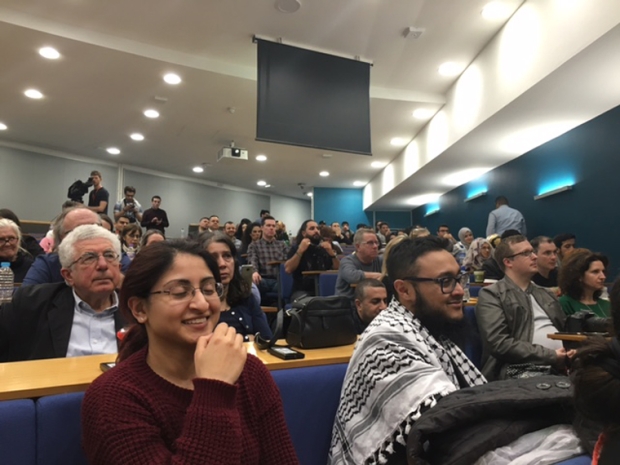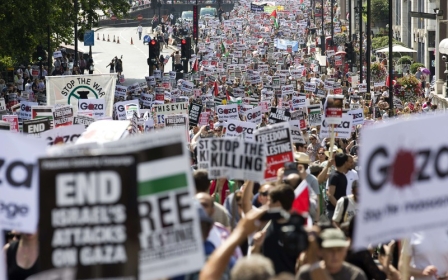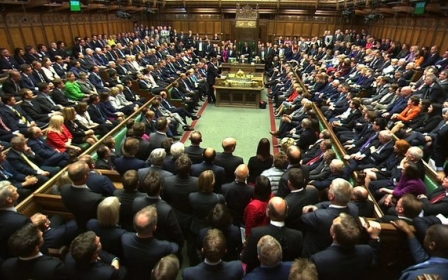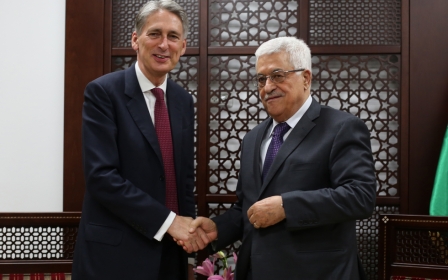Palestine activists press UK to apologise for Balfour declaration
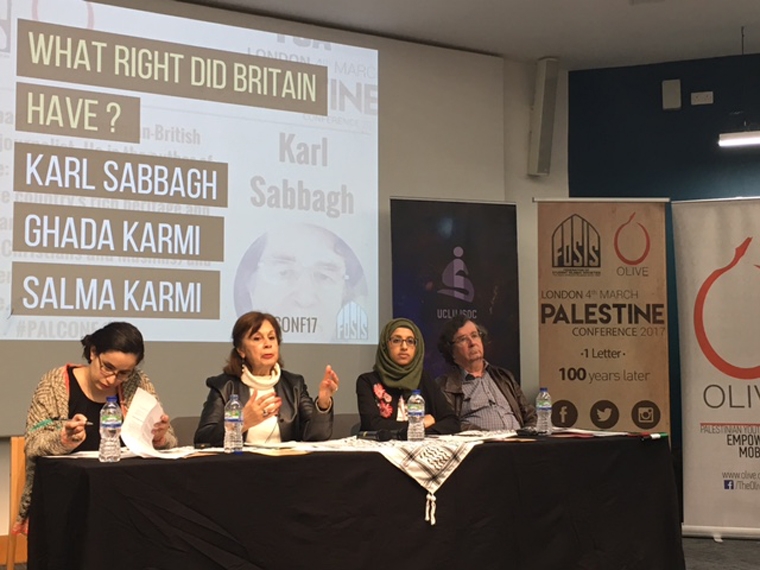
LONDON - Pro-Palestinian activists on Saturday called on the British government to apologise for the "disastrous" role of the Balfour declaration in the "biggest social injustice of our time" - decades of Israeli occupation of Palestinian lands.
Speakers at the Palestine conference at University College London said the centenary of the 1917 declaration was the right time to make amends.
Salma Karmi-Ayyoub, a criminal barrister and external consultant for the Palestinian human rights organisation al-Haq, said: "The UK should issue an apology and think about compensating the Palestinians for their losses... which are a direct result of British policy."
'The UK should issue an apology and think about compensating the Palestinians for their losses'
Salma Karmi-Ayyoub, consultant for al-Haq
The conference, organised by the Federation of Student Islamic Societies (FOSIS), and Olive, a Palestinian youth organisation, was held to explore the role of Britain and the declaration on the loss of Palestine over the past 100 years.
It aimed to "expose the illegality of the state of Israel while giving practical steps in campaigning towards an end to the Israeli occupation of Palestine".
Other speakers included Miko Peled, the son of an Israeli general who served in the Six Day War and whose grandfather signed the Israeli Declaration of Independence, and Avi Shlaim, a British-Israeli historian and emeritus professor of international relations at the University of Oxford, who served in the Israel Army.
The then UK foreign secretary, Arthur James Balfour signed his declaration in 1917 declaring "public support for Zionism" to the leader of Britain's Jewish community. It was used as a justification by the Zionist movement for the creation of Israel after the second world war.
Shlaim said that while it was only 67 words, it had "far-reaching consequences for the region" where, in essence, "one country (Britain) promised another country, (Palestine) to a third people (the Jews)".
Karl Sabbagh, a Palestinian-British writer and journalist, told the conference that the declaration "contained a promise to the Arabs and they [the British] broke it" - in reference to Balfour's statement that "nothing shall be done which may prejudice... existing non-Jewish communities in Palestine".
Jonathan Rosenhead, of the London School of Economics and chairman of the British Committee for the Universities of Palestine, said the declaration was "disastrous".
FOSIS president Zara Mohammed said she hoped the conference would be a "springboard to action and not simply symbolic".
"What is happening in Palestine is the biggest social injustice of our time. We send a message to the people of Palestine, we are here and we stand with you," she said.
Palestine was a cause that "transcends colour, race, ethnicity, it is a state unrecognised by some, but held close in the hearts of those who matter most.
"The Palestinian cause has been at the heart of FOSIS since 1963 – the point of FOSIS was to be able to speak up in times where hate roams free."
The conference discussed other areas of Israeli occupation and the Israeli government's plans to declare Israel a Jewish state, which Karmi-Ayyoub said would have terrible consequences for Palestinian citizens of Israel.
"The right of Israel to exist as a Jewish state is problematic under international law... favouring one ethnicity over another can't happen," she said.
Peled meanwhile said he rejected Israel's right to exist. "The country is not Israel/Palestine. The country is Palestine. Israel is the problem! Does the state of Israel have the right to exist? No. Categorically no."
He said the current violence could be traced back to 1948. "The crime is Israel," he said, adding: "There would be no Hamas if it wasn’t for the ethnic cleansing of 1948."
Speakers also criticised US president, Donald Trump, saying he had allowed Israel's prime minister, Benjamin Netanyahu, the freedom to expand settlements in the West Bank despite them being illegal under international law.
'There would be no Hamas if it wasn’t for the ethnic cleansing of 1948'
- Miko Peled
The conference speakers expressed a general statement of support for the Boycott, Divestment and Sanctions movement (BDS) against Israel as a road to toppling the "apartheid" regime.
The call for a Balfour apology echoes those made by Jenny Tonge, a Liberal Democrat peer who has launched an initiative to press the UK government to acknowledge its role in "almost a century of Palestinian suffering," and a parliamentary petition by Palestinians.
There have also been demands from the international community, including Chilean MPs, for the UK to apologise.
The UK has said it would "neither celebrate nor apologise" for the declaration.
Middle East Eye propose une couverture et une analyse indépendantes et incomparables du Moyen-Orient, de l’Afrique du Nord et d’autres régions du monde. Pour en savoir plus sur la reprise de ce contenu et les frais qui s’appliquent, veuillez remplir ce formulaire [en anglais]. Pour en savoir plus sur MEE, cliquez ici [en anglais].


